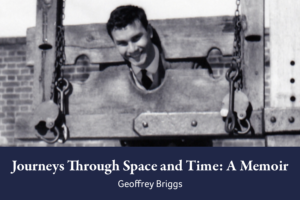Please allow me to introduce myself: I’m Amy Iori, a ghostwriter, and I’m fortunate to have one of the most unique jobs on the planet.
Ghostwriters are professional wordsmiths who produce books, articles, and speeches on behalf of other people. The twist is that, even though we are the ones doing the writing, we aren’t ever credited as the author—rather, our clients are.
Ghostwriters are often hired by celebrities and corporate executives who want to write a book but don’t have the time or professional writing ability to do so effectively. Our specialty is capturing their unique voices in print so that no one ever guesses it wasn’t actually written by them.
Biography vs. autobiography
Capturing a client’s voice is an essential part of ghostwriting, but what does that actually mean? And how do we stay true to someone else’s voice throughout a whole manuscript without losing clarity?
To help answer those questions, consider the difference between a biography and an autobiography.
In a biography, there’s considerable distance between the writer and the subject. The story I write would consist of facts, along with my own interpretations of those facts. I could write the biography of someone who is still alive … or someone who lived centuries ago. Either way, I would write from a third-person perspective.
Conversely, an autobiography is close and personal and written in the first person. If you’re writing your own autobiography, you’re telling a mostly one-sided story from your own perspective. You might relate your interactions with other people, but the perceptions and interpretations would be your own.
But what if you’re writing someone else’s autobiography? This is where it can get tricky, because we instinctively add our own spin when retelling a story. Our speech patterns, opinions about the subject matter, and natural colloquialisms all influence the anecdotes we hear and the words we write. When uncontrolled, the client’s words become our own on the page and the original voice gets lost. The story begins to sound more like the ghostwriter than the client.
Speaking the client’s language
When writing the memoirs of a World War II fighter pilot recently, I was faced with a lot of aircraft and flying terminology, in addition to some jargon. Take this passage in which the client describes nearly getting shot down in France the day after D-Day:
“I sent 12 birds home for refueling in case of another mission and kept my flight of four going after the tanks. We knocked out two or three, an APC, and a staff car. Hopping over the hedgerow at about 300 miles per hour, at 10:00, I saw a big gun having at us. I honked the bird up to maybe 100 feet or so, went directly into him, and got him. He’s out of business completely. Almost simultaneously he got me. Snap-rolled my Jug right towards the ground like a leaf in a windstorm.”
It would have been easy for me to insert my own language here. “Birds” are aircraft. His “Jug” is a P-47. The “big gun having at us” is the enemy’s tank taking aim, and rather than “honking the bird up,” likely another unfamiliar term for most people, I could have just said that he “increased his altitude.”
In this case, the voice in the narrative is easily recognizable as that of the storyteller by anyone who knows him. His word choices might not have been my preferred word choices, but they reflect the way he talks. So, even though I was tempted to adjust the terminology and phrasing, I left it “as is” to maintain authenticity.
For another project, the client had both a medical and a military background, and he used language that was formal, proper, and heavy on passive voice constructions. As a result, the book took on a more dignified or official tone.
Medical terminology aside, I had to avoid simplifying anecdotes in favor of more common verbiage. For example, I might have referred to “excessive ethanol consumption” as simply “heavy drinking.” This wasn’t how I would have written it, but, as a ghostwriter, that was the point!
Tuning in to their wavelength
In my experience, to be able to appreciate and reproduce a storyteller’s voice, it is essential either to interview and record the storyteller myself or, as with LifeBook Memoirs, to listen carefully to the audio recording of someone else conducting the interview. This helps me tune into the client’s wavelength, to grasp their personality, their quirks, and their individual storytelling style.
Either way, as I write, I pay close attention to things like:
- Cadence and pace—Does the client’s speech have a natural rise and fall? Do they speak quickly and energetically or slowly and thoughtfully?
- Cultural references—Does the client touch upon specific books, music, films, or historical events that reflect their identity?
- Dialects and accents—Are there distinctive phrases or expressions tied to the client’s background?
- Directness vs. subtlety—Does the client say things outright or just imply them?
- Emotional cues—Does the client’s speech exude warmth, nostalgia, hesitation, or excitement?
- Humor and wit—Does the client’s voice naturally include humor or sarcasm?
- Jargon, specialized terms, and industry expressions—Are there culturally or professionally specific terms that the client uses? Should they be defined or left “as is” to preserve the client’s authentic voice?
- Metaphors and imagery—Does the client make use of certain types of comparisons or serve up particularly vivid, colorful descriptions?
- Repetition and emphasis—Does the client rely on particular words, phrases, or catchphrases to express themselves? If so, do they use them for emphasis or out of habit?
- Sentence structure and patterns—Does the client favor short, simple sentences or long and complex ones?
- Slang and colloquialisms—Does the client use informal expressions, regional phrases, or profanities? Should they be retained to reflect authenticity or adjusted for clarity?
- Tone and formality—Is the client’s natural style casual or formal, warm or reserved?
Ghostwriter for hire
For several years now, I’ve worked as a professional ghostwriter for LifeBook Memoirs. Our mission is to capture each client (or author’s) life stories, memories, and photos—and yes, their voice—with exceptional care, to ensure a unique and enjoyable experience and a beautifully crafted book.
Here’s how the LifeBook process works. First, the author sits down for a series of engaging, personal conversations with one of our expert interviewers. The interviewer then passes the recordings of these conversations to a specially selected ghostwriter.
From there, the ghostwriter organizes the author’s various life experiences and lessons into a cohesive, compelling, and intriguing memoir. The ghostwriter will take care to write in their unique voice so that it feels completely genuine and authentic.
This is a win-win for the author: They get their life story preserved without having to spend months or years doing the hard work of writing, revising, and organizing their experiences into a narrative.
Conclusion
All things considered, I have found over the years that the most important thing in ghostwriting is to be sensitive to the tone and content being shared by the client. The goal is always to make sure the reader hears the client’s voice loud and clear.
Interested in having one of the expert ghostwriters at LifeBook Memoirs record your life story? It’s easy to get started. Just give us a call on 1-561-782-9119.
Written by Amy Iori, LifeBook Memoirs ghostwriter





